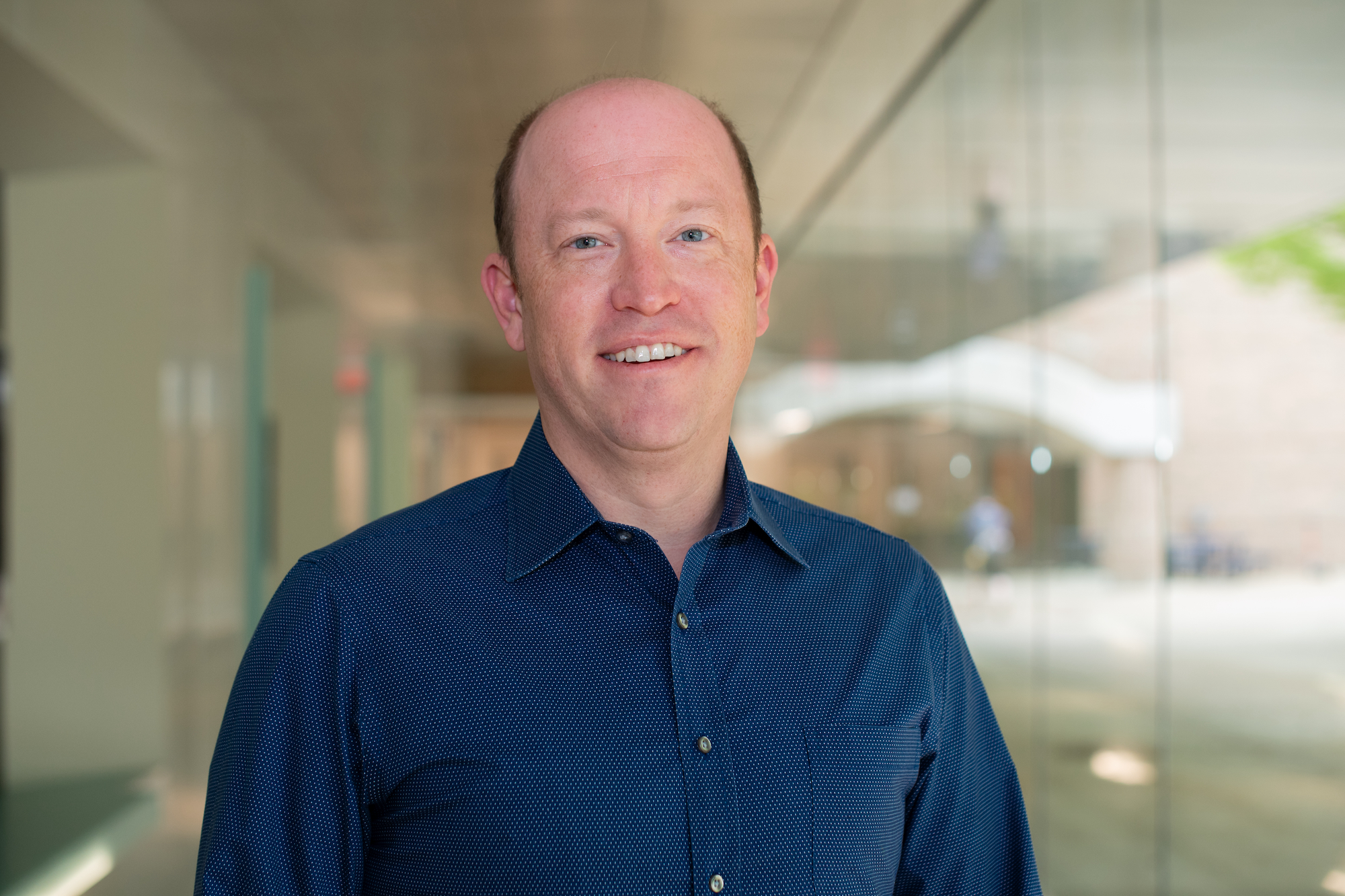Mena Davidson • July 28, 2025
Prof. Burgers’ research will explore the use of a novel atomic state for fast quantum computation with neutral atoms.
Alex Burgers has received a $1.5M grant from the Army Research Office for his research on neutral atom platforms for quantum computing. His proposed project, “Exploring the Versatility of Ytterbium’s 3P2 State for Quantum Computing Applications,” aims to investigate the utility of new atomic states in Ytterbium for quantum computing.
Quantum computers have the potential to solve problems that are challenging, or even impossible, for today’s computers. This ability could advance the development of medicines, AI technologies, financial market predictions, cybersecurity, and more. Burgers’ research into a novel energy state in ytterbium atoms is fundamental to making these visions a reality.
“There are a lot of different platforms for quantum computing,” said Burgers, assistant professor of Electrical and Computer Engineering. “Our platform utilizes arrays of neutral atoms trapped in optical tweezers. Neutral atoms have many advantages. They’re very coherent, identical, and controllable.”
“The nature of neutral atoms allows us to create large arrays of these atoms, where each atom can act as a quantum bit—a qubit—of information.”
A classical computer bit has a binary value of either 0 or 1, allowing information to be encoded as a series of 0s and 1s. Conversely, the value of a qubit is a continuous combination of |0⟩ and |1⟩.
In a quantum computer, one qubit can’t tell you much. Instead, researchers are interested in pairs or sets of entangled qubits whose atomic states are inherently linked.
“The outcome of a quantum gate operation is an entangled state of the two qubits being in some superposition or combination,” explained Burgers. “But at the end of the day, you have to be able to do a computation and get out an actual answer, not a probabilistic one.”
“Part of the problem that we run into currently, in all quantum computing platforms, is that we can’t be fully confident about the outcome. We need to be sure that the value we are reading out is the answer, and that if you wait a long time, the probability of that state having shifted to a different state is still very small.”
The most extensively developed neutral atom platforms utilize alkali atoms, such as cesium and rubidium, which can quickly perform the qubit gate operations necessary for calculations. However, the information in these systems is only available momentarily. Over time, the information “decoheres,” or becomes meaningless due to a high probability of errors.
Burgers sees a solution in ytterbium, an alkaline-earth-like atom. Ytterbium has an energy state with an extremely long coherence, known as a metastable state, that allows researchers to get an answer to a large calculation with a high degree of confidence. But there’s a catch: operations in this 3P0 metastable state are slow. Burgers plans to use a second metastable state in ytterbium, called 3P2, to speed up the calculations.
“Nobody’s ever looked at this 3P2 state for quantum computing before,” said Burgers, “but the advantage of ytterbium is that it has many internal states, which can give us the best of both worlds—a computational qubit that can do fast operations [3P2] and a storage qubit that is robust against decoherence [3P0].”
With the ARO support, Burgers will explore the versatility and utility of the new 3P2 state, trapping atoms in pairs of lasers called optical tweezers, transitioning them between energy states, and performing gate operations. Ultimately, he hopes to scale this work up to create larger arrays of entangled ytterbium atoms that can process information in parallel.
Burgers’ groundbreaking research in his Quantum Optics Lab has also been recognized with funding from AFOSR, DARPA, and NSF.
